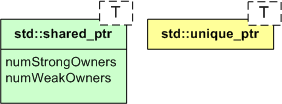Trip report: Fall ISO C++ meeting -- Michael Wong
Michael Wong, head of Canadian delegation, has posted Part 1 of his report on the September ISO C++ meeting held in Chicago.
The View from the C++ Standard meeting September 2013 Part 1
by Michael Wong
From the article:
At this meeting, the most important thing was to address as many of the National Body (NB) Comments from the draft C++14 CD possible. This will enable us to be in good shape for the release of C++14 in 2014. Please look at my blog series to get an idea of the major content. However, this meeting did have some interesting minor changes which modified that content. This is fairly normal to decouple features which is still controversial. The biggest change is the moving of VLA (or what we called Array of Runtime Bound) and
dynarrayinto a library array TS, and the adoption of the single quote as a digit separator for C++14.

 The past week saw new releases of two major C++ implementations, with a focus on standards conformance improvements.
The past week saw new releases of two major C++ implementations, with a focus on standards conformance improvements. Building upon the resounding success of C++Now 2013 and five years of BoostCon, C++Now 2014 will present leading speakers from the whole C++ community. We invite you to submit session proposals to the third annual C++Now Conference:
Building upon the resounding success of C++Now 2013 and five years of BoostCon, C++Now 2014 will present leading speakers from the whole C++ community. We invite you to submit session proposals to the third annual C++Now Conference: The
The  A little nugget about the free-as-in-no-overhead-ness of
A little nugget about the free-as-in-no-overhead-ness of  In this article, Eric Niebler discusses an issue of API design regarding the age-old question of out parameters versus return-by-value, this time in light of move semantics. He uses
In this article, Eric Niebler discusses an issue of API design regarding the age-old question of out parameters versus return-by-value, this time in light of move semantics. He uses  Jeff Preshing gives a nice overview of the on-again/off-again/on-again status of a common approach to lazy initialization.
Jeff Preshing gives a nice overview of the on-again/off-again/on-again status of a common approach to lazy initialization. Ready for a full day of C++11/14/17 content in the Spanish language?
Ready for a full day of C++11/14/17 content in the Spanish language?